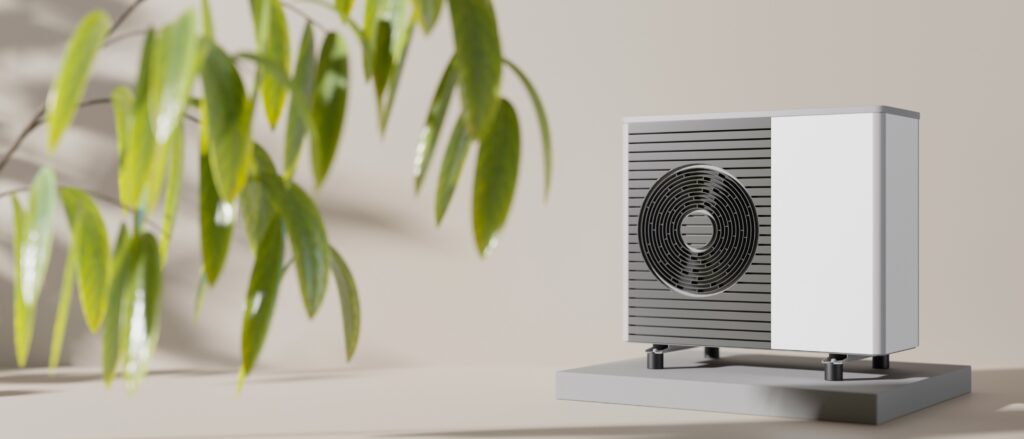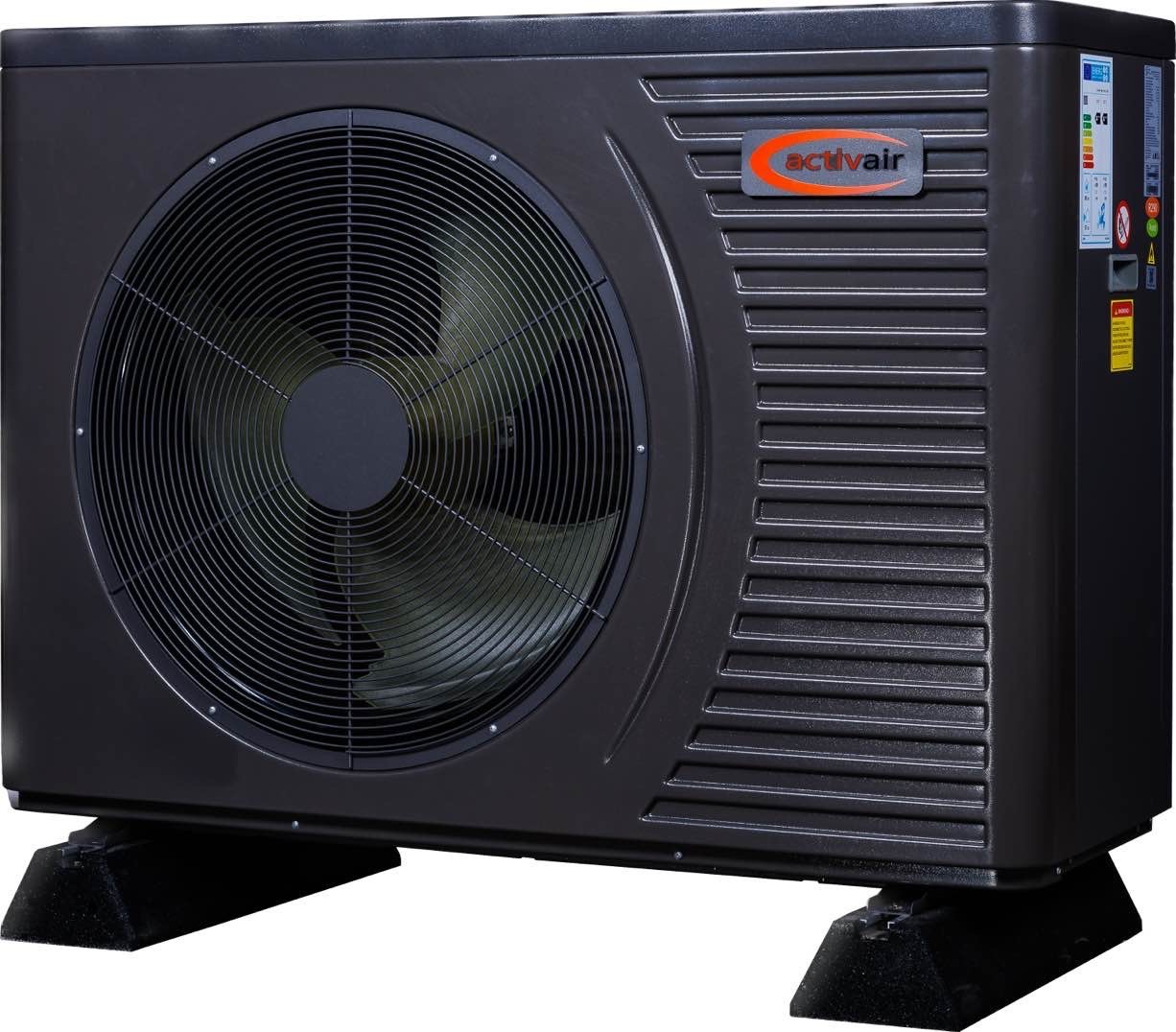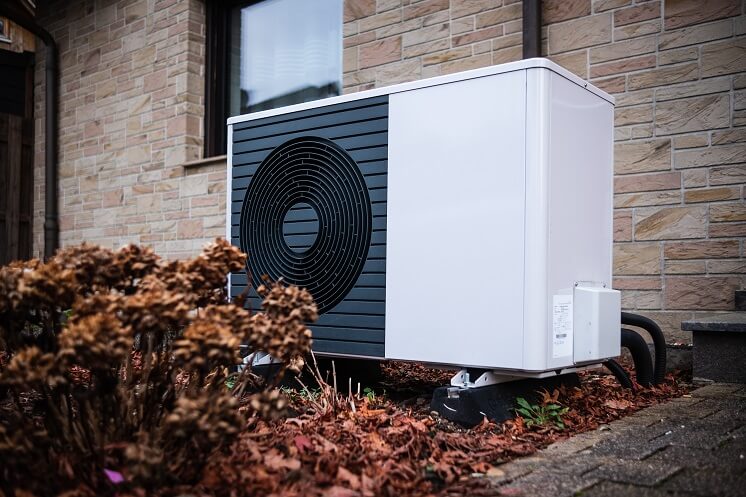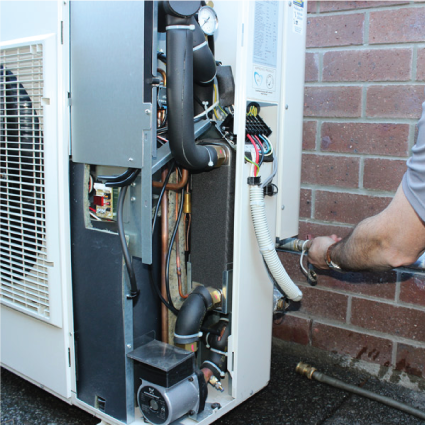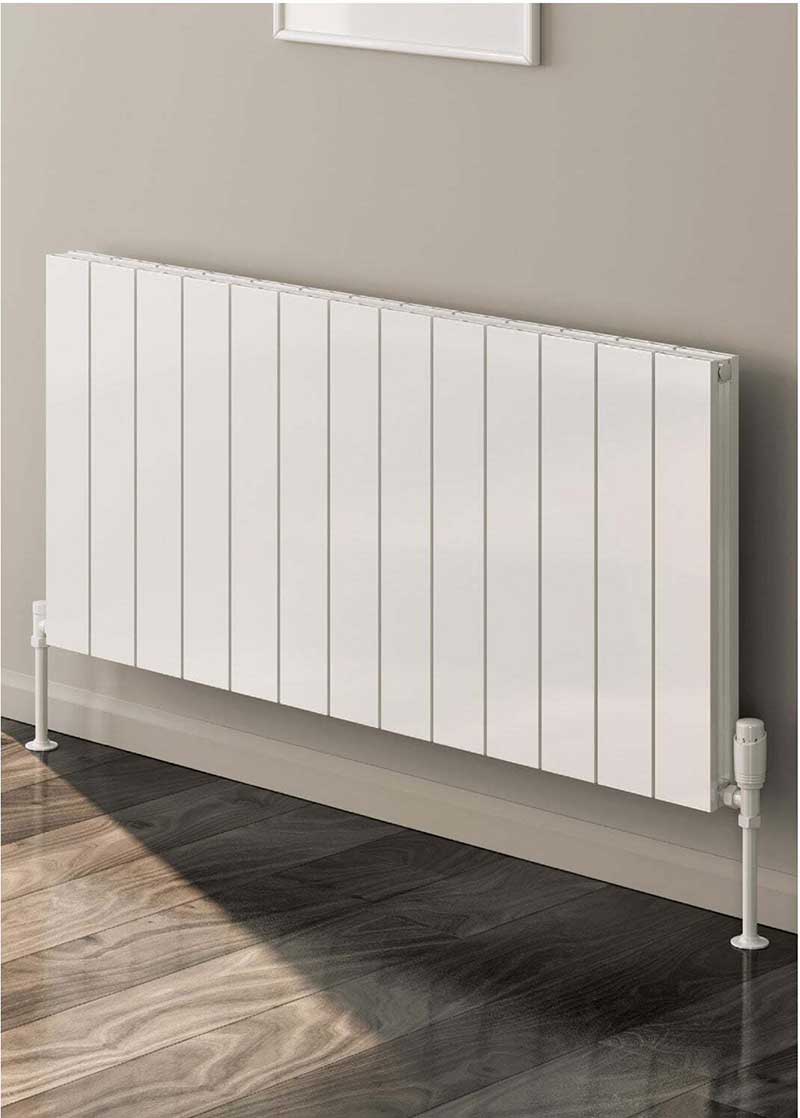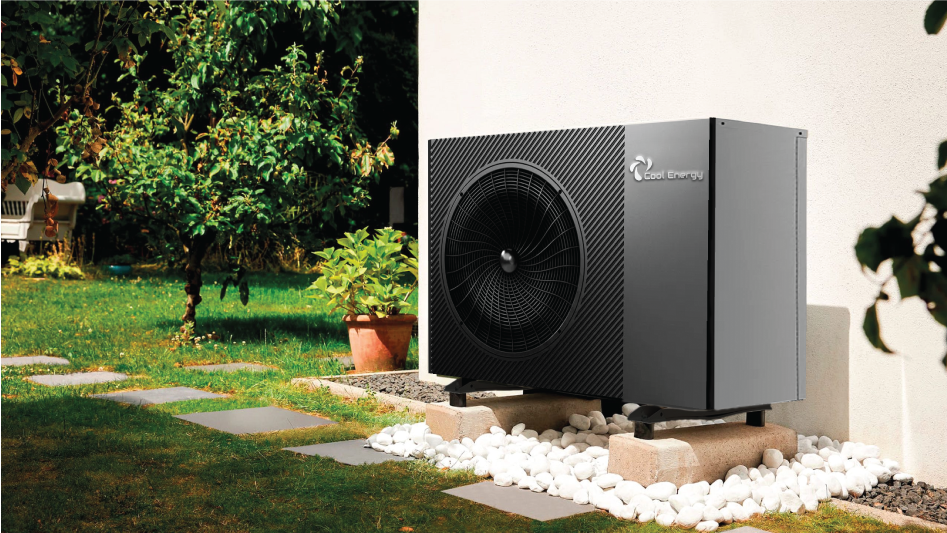In the realm of heat pumps, larger is not necessarily better.
The appropriate size of an air source heat pump varies, but the average home typically requires a model with an output rating ranging from 4 kW to 16 kW. This principle also applies to ground source heat pump sizing.
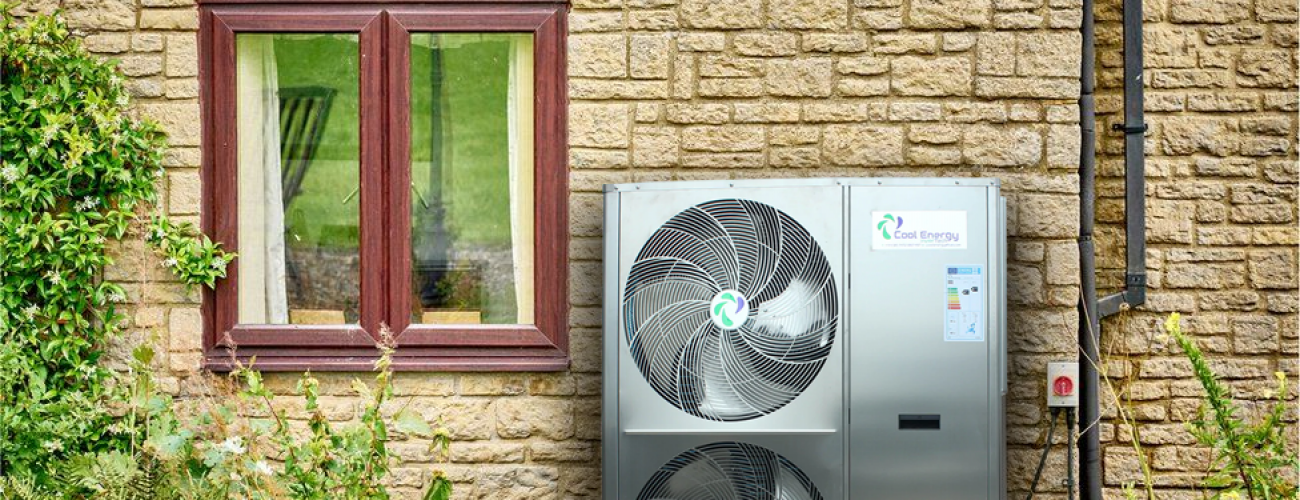
What's on this page?
Why does heat pump size matter?
It is highly beneficial to dedicate some time to researching the appropriate size for an air source heat pump or ground source heat pump for your residence.
If the output is insufficient, the heat pump will need to operate for extended periods to fulfill the heating requirements. Conversely, a heat pump that surpasses the demands of your home will cycle on and off frequently, a phenomenon known as short cycling, thereby imposing unnecessary strain and potentially leading to malfunctions in the heat pump.
For optimal efficiency and effective heating, it is imperative that the output rating aligns with the heating demands of your home. Engaging the services of a qualified heat pump installer is the most reliable approach to achieve this.
Quick guide to sizing a heat pump
Air source and ground source heat pumps are assigned output ratings in kilowatts (kW), indicating their power capacity. Typically, the larger the home, the greater the required output of the heat pump.
Determining the appropriate size for a heat pump is a complex task. Since the heating requirements of each property and household are distinct, there is no universally applicable solution. To accurately determine the right size for an air source or ground source heat pump for your home, it should be evaluated by a professional installer, taking into account the following factors:
- Type/size of property
- Level of insulation/heat loss
- Size of radiators or underfloor heating
- Desired indoor temperature
- Seasonal outdoor temperatures in your area
We conducted some industry research and found the following size recommendations to provide you with a rough guide.
| House type | ASHP recommended output (kW) | GSHP recommended output (kW) |
|---|---|---|
| 2 bed house / flat | 5 | 4 |
| Poorly insulated 3 bed house | 9 | 8 |
| Well insulated 4 bed house | 9 | 8 |
| Poorly insulated 4 bed house | 16 | 15 |
| Well insulated 5 bed house | 16 | 15 |
A professional heat pump installer will be able to calculate the right size of heat pump for your home to ensure it can heat your home and hot water all year as efficiently as possible.
A heat pump which is too small will fail to meet demand but don’t go overboard as a heat pump that’s too big will short cycle (turn on and off again and work in short bursts), which isn’t good for efficiency.
While you should always get heat pump quotes from Microgeneration Certification Scheme (MCS) accredited installers, here we’ve outlined the key factors they’ll be using to calculate the right size of heat pump for your home.
How to get the right size heat pump
When working out the most appropriate size for your new heat pump, a heat pump installer will consider many factors, such as:
- Size of your property
- Level of insulation
- Whether you have radiators or underfloor heating
- Your location in the UK
What is the size of your home?
Generally, the size of the heat pump corresponds to the size of the home.
In addition to the home’s size, the installer will also take into account the type of property. For instance, a detached bungalow may necessitate a different size compared to a terraced home.
The types and sizes of rooms will also be a factor, as lounges typically require longer and higher-temperature heating compared to bedrooms.
Typically, a heat pump with an output rating between 4 kW and 12 kW is suitable for most homes in the UK. Heat pumps with ratings of 15 kW and 16 kW are more suitable for larger, poorly insulated properties and district heating networks.
How well insulated is your home?
A crucial aspect of heat pump sizing calculations involves assessing the insulation levels and heat loss in your home.
Unlike traditional boilers that heat water to a high temperature and then switch off, heat pumps consistently heat water but to a lower temperature.
In a poorly insulated home, heat easily escapes, causing the heat pump to struggle to effectively and efficiently heat the space. In contrast, a new home with high insulation and double glazing might require a heat pump with a lower output than an older property with poor insulation.
The installer will calculate the heat loss level of your home when designing the heat pump system. A current Energy Performance Certificate (EPC) is necessary to identify any potential energy efficiency issues with the home and to qualify for government grants post-installation.
Prior to installing a renewable heating system such as a heat pump, the insulation of the home must be taken into account. Both new and old homes must meet minimum insulation levels in accordance with building regulations to have a heat pump installed.
Insufficient insulation can hinder the renewable heating system from efficiently and effectively heating your home.
Do you have radiators or underfloor heating?
Heat pumps provide hot water at a lower temperature than boilers. This means that a larger surface area is needed for the heat to be emitted at the same level of comfort.
To achieve this, it’s worth considering underfloor heating, more radiators or replacing standard radiators with larger ones. Underfloor heating can be paired with a heat pump with a smaller output as the surface area is greater and water can flow at a lower temperature. Radiators will need a more powerful output to reach higher temperatures.
Radiator oversizing hasn’t been uncommon in past years when installed as part of a heating system with a boiler. So, there’s a chance that your existing radiators could be well suited to putting out the lower temperatures delivered by a heat pump.
Radiator sizing and underfloor heating systems need to be calculated by a professional MCS installer. This will ensure you get the best solution for your home, minimise your energy bills through greater efficiency.
Where do you live in the UK?
By drawing heat from the outdoor air, it is evident that air source heat pumps are more efficient in warmer climates. Nonetheless, this does not imply that they are ineffective in colder temperatures. Many models operate in temperatures as low as -15°C, with some even functioning in -25°C.
In the UK, experiencing temperatures as low as -25°C is highly uncommon. Nevertheless, when determining a suitable output rating, an installer will take into account the potential lowest annual temperature in your region. This consideration will vary significantly for a property in the north of Scotland compared to a residence on the south coast of England. For most parts of the UK, this temperature is likely to be slightly below 0°C.
Will heat pump size affect running costs?
Several factors can influence the operating costs of heat pumps, and size is one of them.
Selecting a ground source heat pump with an output rating that does not align with the heating requirements of your home will undoubtedly impact your running costs. An excessively powerful heat pump can lead to unnecessary increases in heating bills. This underscores the importance of seeking advice from a qualified heat pump installer to determine a suitable output rating for your home.
If you are installing a heat pump with a substantial output rating, it is probable that your heating demands are high. Consequently, your heating bills are likely to be higher than those of a property with a smaller heat pump, as it will be generating more heat.
In addition to size, operating costs can also be influenced by factors such as efficiency (Coefficient of Performance), the level of insulation in your property, and the heating demand.
Is there a heat pump size calculator?
There is no universal heat pump size calculator, but you can estimate the approximate size of the heat pump you will need if you have certain measurements:
Size of your home in square meters The number of kilowatts (kW) required to adequately heat your home
As a general guideline, experts recommend allocating 1 kW for every 10 square meters. However, it is crucial to also consider the amount of heat your home loses. This calculation should be performed by a professional, but as an average, a newly constructed home may lose 50kW, while an older home with limited insulation could lose as much as 100kW.
With these values, a professional installer can determine the appropriate size of the heat pump, ensuring it can supply sufficient heat and hot water for your home throughout the year while keeping energy costs to a minimum.
What size hot water cylinder do you need?
Air-to-water heat pumps and ground source heat pumps must be incorporated into a heating system that includes a hot water cylinder. It is equally critical to install a hot water cylinder of an appropriate size to accommodate the needs of your home, just as it is important to ensure the correct size for the heat pump.
Since the heat pump is responsible for heating the water in the cylinder, an unvented indirect cylinder is required. This type of cylinder contains a coil that is heated by the heat pump, subsequently warming the water stored within the cylinder.
The following table provides an approximate guideline for determining the necessary size of the hot water cylinder to meet the hot water requirements of your home.
| Bedrooms | Bathrooms / Showers | Indirect (litres) | Direct (litres) |
|---|---|---|---|
| One | One | 75/120 | 120/150 |
| Two | One | 150 | 180 |
| Three | Two | 180 | 210 |
| Four | Two | 210/250 | 250/300 |
| Larger Properties | 300+ | 300+ | |
Get quotes for a heat pump
To determine the appropriate size of air source heat pump for your property, it is advisable to arrange for a professional heat pump installer to conduct a survey of your premises.
In search of a heat pump installer in your vicinity? Simply take a few moments to fill out our online form, and we will handle the rest. You will receive complimentary quotes from up to three installers operating in your area. This will enable you to compare the quotes and proceed with the installation of your heat pump, assured that you are obtaining the most competitive price.
Find out how much a heat pump would cost you
Complete A Short Form – Receive Free Quotes – Compare & Save
Find out how much a heat pump would cost you
Complete A Short Form – Receive Free Quotes – Compare & Save









